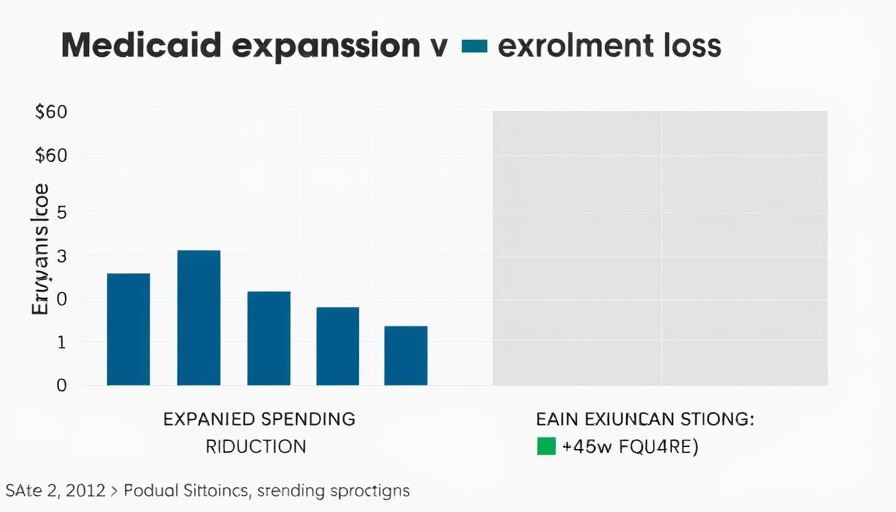
Significant Cuts Looming for Medicaid Expansion States
The House's recently passed One Big Beautiful Bill Act is creating ripples of concern among residents in Medicaid expansion states. This budget reconciliation package is poised to reduce federal Medicaid spending significantly—by an estimated $793 billion—which translates to the potential loss of coverage for over 10.3 million people. As a result, the number of uninsured citizens could increase by nearly 7.8 million over the coming years.
Understanding the Impact of Bill Provisions
The provisions within the House bill specifically target states that adopted the Affordable Care Act (ACA) Medicaid expansion. Approximately half of the proposed federal spending cuts, about $427 billion, will directly affect these states. The bill includes requirements for work and reporting, along with penalties for states that expanded coverage using state-only funds, signaling a drastic shift in how Medicaid functions.
A Disproportionate Blow to Expansion States
What’s especially striking is the disproportionate impact of these cuts on states that have embraced the Medicaid expansion. According to prior analyses, federal cuts in these states could represent around 13% of their total Medicaid spending over the next decade—markedly higher than the 6% expected in non-expansion states. This poses alarming predictions of increased uninsured rates and tighter access to healthcare services.
Future Implications and Community Responses
As we look ahead, the potential consequences of these cuts are troubling for community health across expansion states. Not only could hospitals experience financial strain due to reduced spending, but the ripple effects could challenge local health initiatives and grassroots organizations working tirelessly to support the vulnerable populations. Citizens and community leaders must rally together to advocate for equitable healthcare access that considers the diverse needs of all residents.
Now more than ever, it’s crucial for insured and uninsured citizens alike to stay informed and vocal about their healthcare needs. Understanding the dynamics of this bill will empower communities to advocate for necessary changes.
 Add Row
Add Row  Add
Add 




Write A Comment